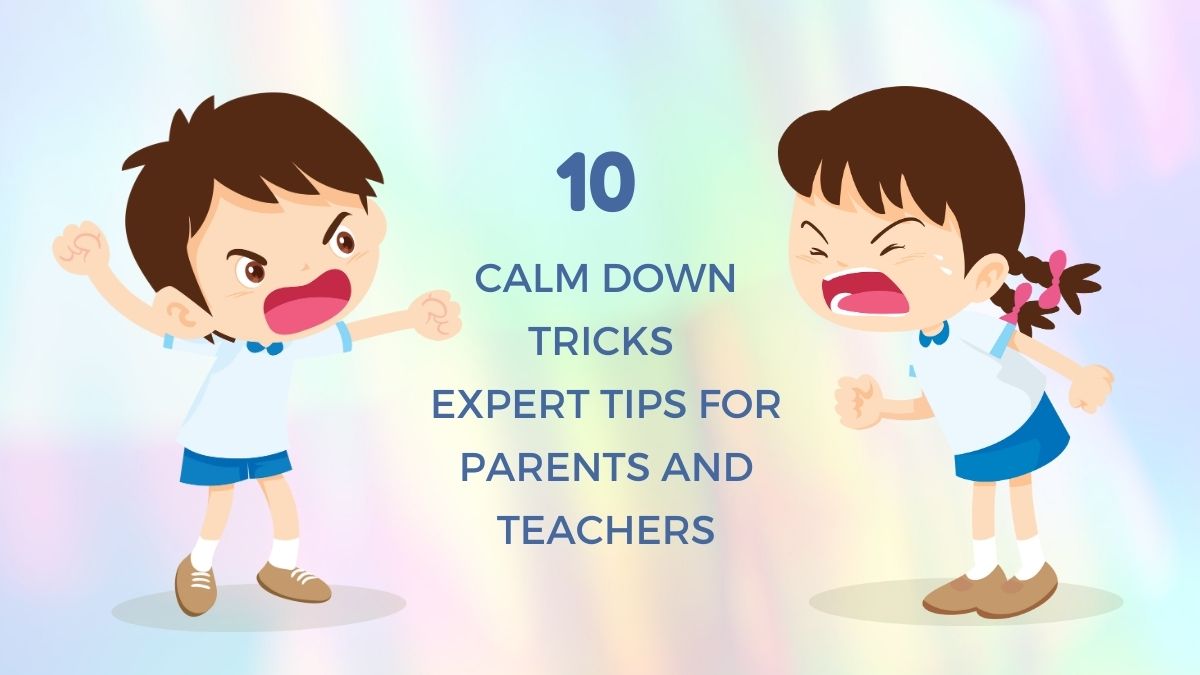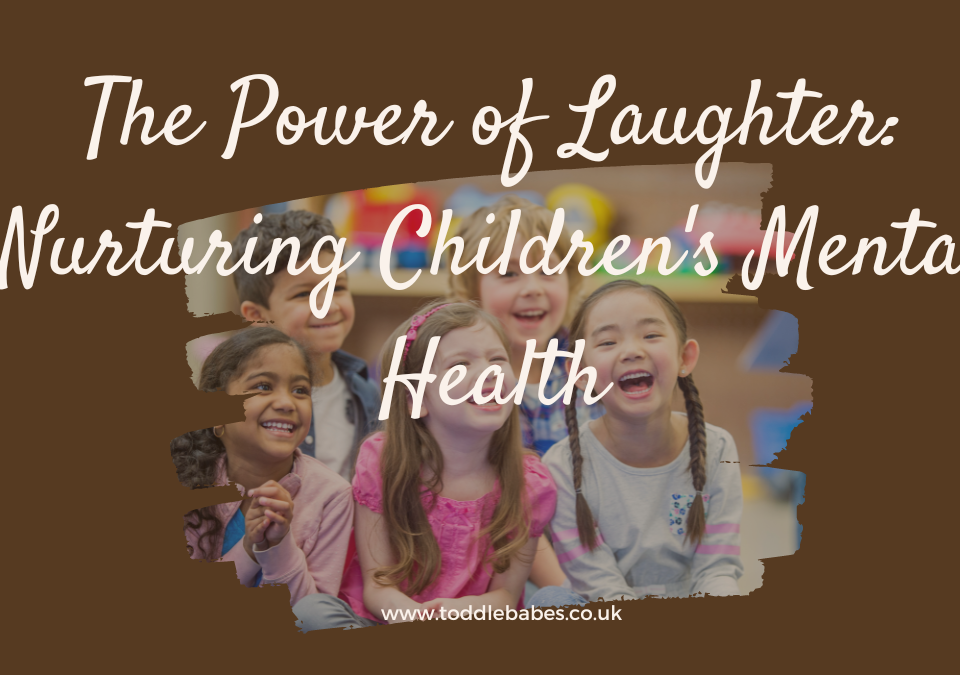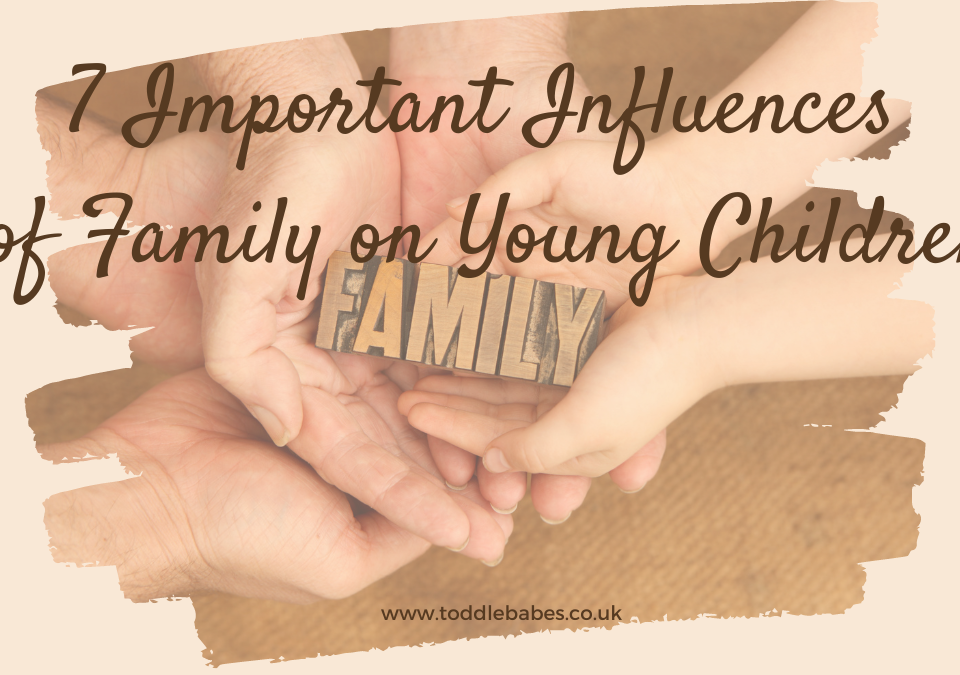
Laughter: Why Raising Happy Children Starts with Giggles

10 Ways to Calm Down Preschoolers
Preschoolers are naturally curious, energetic, and constantly exploring their world. But sometimes all this stimulation can become too much, leaving them upset, restless, or frustrated. Knowing how to calm down preschoolers when they are overstimulated can make a huge difference in their behaviour and in your stress levels.
Experts agree that young children need guidance to manage strong emotions. Dr Laura Markham, clinical psychologist and author of Peaceful Parent, Happy Kids, explains, “Young children are not born with the skills to self-regulate. They rely on adults to model calm behaviour and provide strategies for managing big feelings.”
Here are ten practical, expert-backed tricks to help you calm down preschoolers both at home and in the classroom.
10 Positive Parenting Phrases That Actually Change Behaviour
1. Create a Quiet Space
A cosy corner with cushions, blankets, and calming toys allows children to retreat when they feel overwhelmed. A designated quiet area helps calm down preschoolers by reducing sensory input and giving them time to reset.
2. Practice Deep Breathing
Simple breathing exercises, like “smell the flowers, blow the bubbles,” help regulate emotions. Encourage your child to inhale slowly through the nose and exhale through the mouth. Regular practice helps calm down preschoolers quickly.
Laughter: Why Raising Happy Children Starts with Giggles
3. Encourage Gentle Movement
Overstimulation can sometimes be relieved with light physical activity. Stretching, yoga poses, or marching on the spot helps release tension and supports emotional regulation. These strategies are highly effective for helping calm down preschoolers.
4. Use Sensory Tools
Fidget toys, stress balls, or textured objects give preschoolers a positive way to focus excess energy. Playing with playdough or kinetic sand provides tactile input that helps calm down preschoolers naturally.
5. Soft Music or White Noise
Background noise or gentle music can drown out overwhelming sounds. Classical music, lullabies, or nature sounds have been shown to help calm down preschoolers and reduce agitation.
10 Powerful Toddler Anger Management Tools for Toddlers
6. Mindful Story Time
Reading a short story in a calm, steady voice provides structure and distraction. Asking children about the characters’ feelings also encourages reflection on their own emotions and helps calm down preschoolers effectively.
7. Visual Calm-Down Aids
Picture cards or visual schedules show children a simple calming routine, such as “sit, breathe, hug soft toy.” Visual guides are excellent tools to help calm down preschoolers independently.
8. Offer Choices
Giving a child control over small decisions, like choosing a book or cushion, empowers them and reduces overwhelm. This simple strategy helps calm down preschoolers while also promoting independence.
13 Effective Ways to Ensure Your Children Get Along
9. Encourage Expressive Arts
Drawing, colouring, or painting lets children express feelings they cannot yet verbalise. As psychologist Dr Tina Payne Bryson notes, “Artistic expression is a healthy outlet for children to release stress and process emotions.” Creative activities are an excellent way to help preschoolers calm down.
10. Stay Calm Yourself
Children mirror adult behaviour. Speaking softly, moving slowly, and modelling deep breathing helps them feel secure. Maintaining your own calm is crucial to helping preschoolers remain calm in any stressful situation.
Putting Calm-Down Strategies Into Practice
Consistency is crucial. Introduce these strategies gradually and observe which ones work best for your child. Some preschoolers respond better to movement, others to quiet or sensory input. Predictable routines, gentle guidance, and patient support make it easier to calm down preschoolers effectively.
Overstimulation is a normal part of early childhood, but with the right tools, it doesn’t have to lead to prolonged distress. By practising these techniques, parents and educators can equip preschoolers with skills to manage their emotions safely and confidently.

I am a preschool and primary school teacher and mum to 3 children. I have been involved in education since 1997 and have trained in a variety of educational specialist areas. It is with this expertise that I write articles to help parents and educators provide quality learning experiences for the children in their care.




